Finishing my bachelor degree in Communications and Mass Media, I was in search of a place to do my internship. Insecurity and hopelessness filled my mind, since I knew that most of the media is censored and most outlets were not going to spend a penny on me — or any young journalist — on the grounds that they are ‘in crisis’.
“I am considered lucky because I earn 500€ a month. From the total amount, I am obliged to pay the extra cost of the bank transfer,” Haris Drousiotis, 23, tells me. He works from home, rewriting news and he doesn’t have an employment contract, which means that he lives in constant stress worrying if he is going to get paid that month. “The work I have done can be deleted any time and there won’t be any sign that I was ever employed there,” he comments, adding that he knows of previous employees who weren’t paid for months of work in the past.
How can you report a story when you are constantly wondering if you might lose your job?
Vicky Veniou, 25, is working as an assistant editor for a television show. “Usually whenever we suggest something, there are always issues arising with the companies who run the commercials and our opinions are never heard. Everything is being done according to the personal taste of the executives”, she comments and mentions that journalism is a really filthy trade. “It’s an industry of recyclable faces. They always ask for the ‘big names,’ but you are the one doing all the work.” She is not willing to sacrifice her beliefs and values, but what about the high unemployment rates, especially among young people? How can you report a story when you are constantly wondering if you might lose your job?
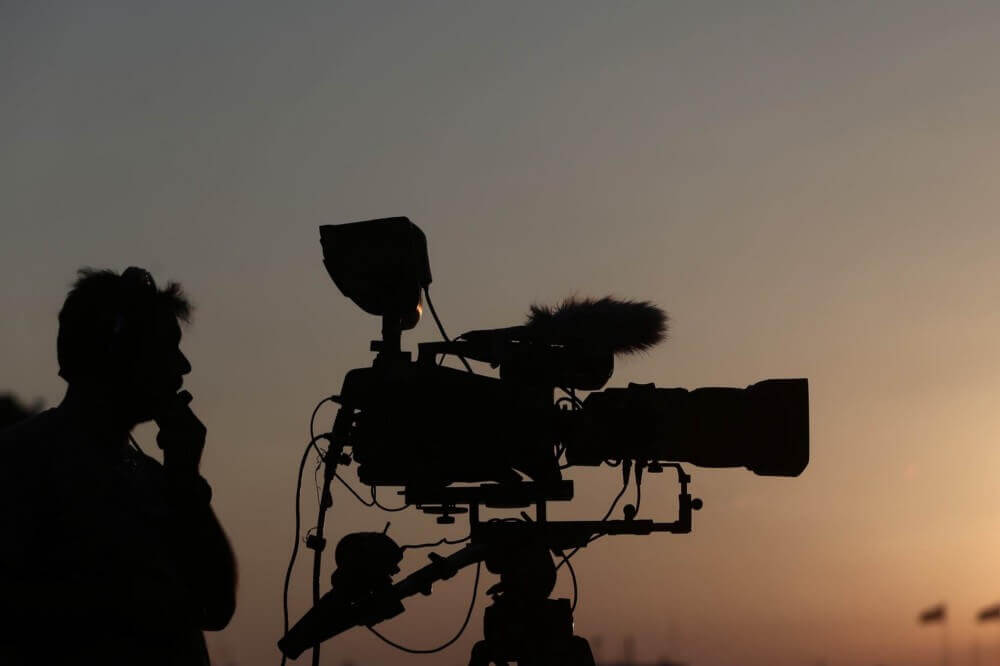
I wondered what is the case as far as people who have dedicated all their lives in journalism are concerned. Freedom of press is absolutely influenced by the working conditions of journalists, according to journalist Aris Chatzistefanou. “In western societies, it is the main factor that affects press freedom. While we think that in authoritarian regimes the state is controlling what the media say, the same is happening in the so-called democratic societies in economic terms.”
Freedom of press is absolutely influenced by the working conditions of journalists.
Reporters Without Borders comment on Greece, the country where a handful of businessmen who own manufacturing, oil and shipping companies, dominate the media landscape: “After having staged a controversial auction to grant national broadcasting licenses — a process that was soon afterwards deemed unconstitutional by the Greek High Court — Alexis Tsipras’ government continues to struggle to end corruption and to provide the adequate framework for the functioning of the country’s media. An attempt to meddle in DOL, one of Greece’s most prominent newspaper groups, by appointing a former SYRIZA MP in charge for its rescue, adds to an already flawed media landscape.”
For a glimpse of the situation in this part of the Mediterranean, that went down 50 places in the world ranking for press freedom, below are just a few of the incidents of the last couple of crisis years.
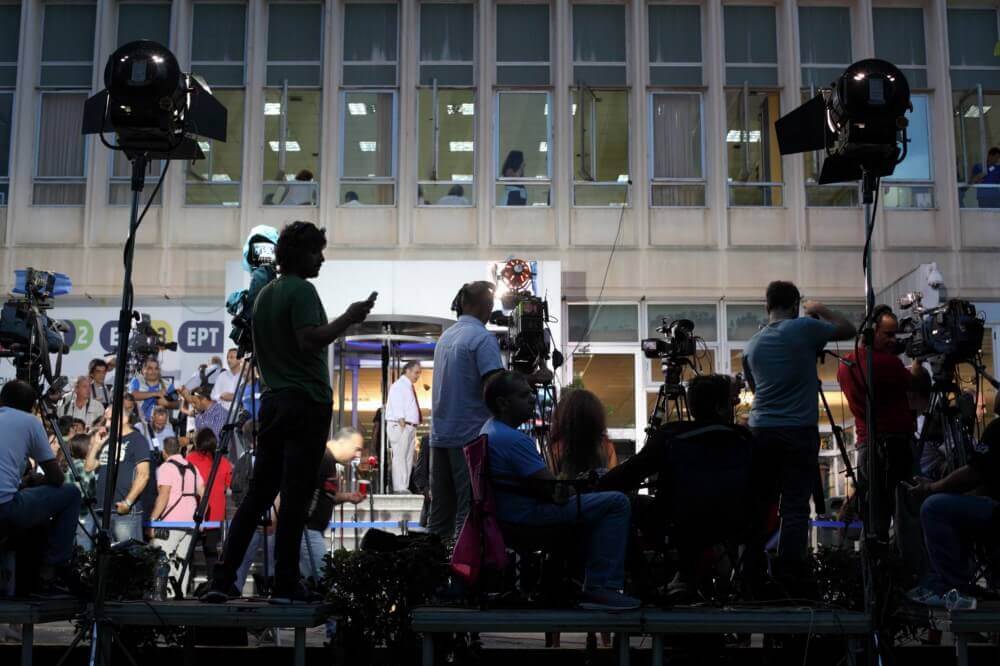
Aris Chatzistefanou claims that as a result of the crisis in Greece, the years 2008–2009 was a time when “many media organizations under the pretext of financial crisis selectively fired many people and all dismissals were for political reasons. They removed most of the disturbing voices”. He says that, for those who remain, this affects the way you write, even when you don’t realize it. “You write a story that your chief editor most probably won’t like in a certain way when there are no jobs, and in a different way when there are no jobs at all.”
People learned that something they never heard about was a lie.
There was a big collapse in the advertisement sector. Since the market for media in Greece has always been small, the newspapers, for example, couldn’t survive off their own sales. “After the fall, only a few big advertisers could go on giving money and most of them were banks. So we end up seeing the same yellow banner, for many many years, and we have to check what those newspapers have been saying about those banks” Aris Chatzistefanou underlines the incident when Reuter’s agency revealed some important facts about Piraeus bank and not one big Greek outlets hared the news. “On the other hand, when the bank’s CEO the next day denied the Reuters reportage, all the media outlets were reproducing this as news, without even saying the substance of what he was refuting. We experienced a surreal situation, when people learned that something they never heard about was a lie.”
“Due to the fact that banks are controlling the advertising pie, those banks are paying the salary of the journalists through the advertising expense as well as through loans they are giving to prejudicial news media, thus promoting their recapitulation. When the presenter of the news was talking in favour of the recapitulation, I knew that he was getting paid essentially by the bank,” he said.
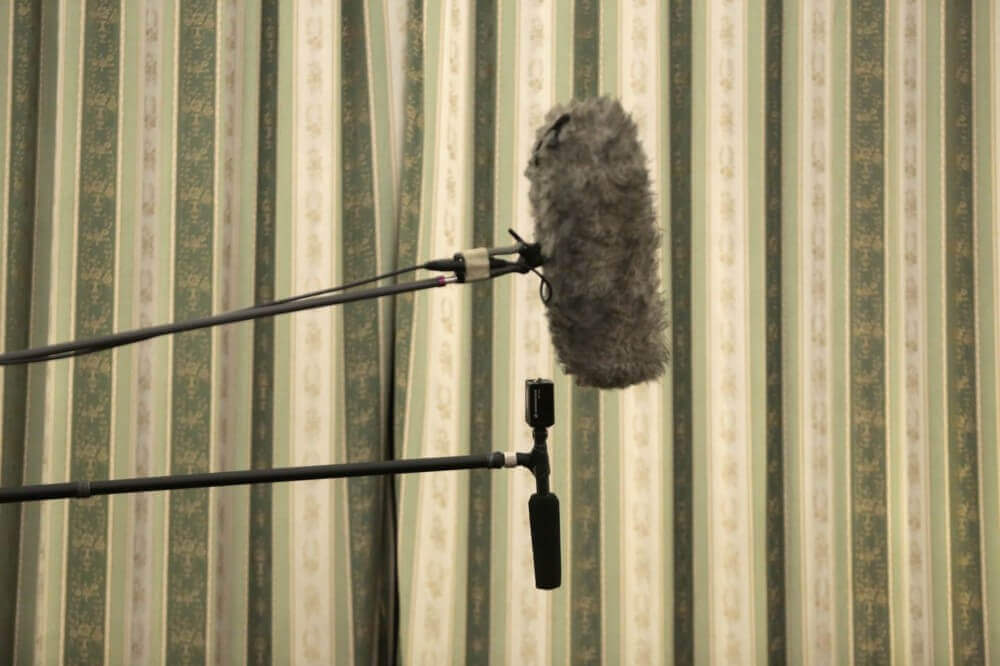
In the beginning of the crisis, Aris Chatzistefanou was working for the TV channel SKAI and he was bringing up examples of the ways other countries were dealing with financial crisis, for instance, he mentioned that Ecuador had erased the biggest part of its bond debt. After two months, Chatzistefanou was shown the door. Through his eye-opening documentaries, his thought-provoking podcasts and his Info-War website, he could still reach his audience, since he had already made a name for himself. But that is not the case for the vast majority of journalists. Whoever has vanished from the dominant media, his voice has lost the ability to reach the crowd.
“Every journalist wakes up every morning and says they have to change profession.”
Apart from online bullying, to which he tries not to pay any attention, after his first documentary “Debtocracy,” his parents received threatening calls at 3 in the morning. “Watch what your children are doing”, they said. He was also kidnapped by the Israeli army during the Freedom Flotilla while bringing humanitarian aid to Gaza, along with many others. The TV station where he worked refused to broadcast the reportage because it was “in the middle of a basketball game”.
“Freedom of information is the foundation of any democracy, yet almost half of the world’s population is still denied it,” Reporters Without Borders state. In the memorandum era, Greece fell down the stairs of press freedom and sank into the seabed of (in)dependent journalism. According to Reporters without Borders, we went down 50 whole places in the world rankings.
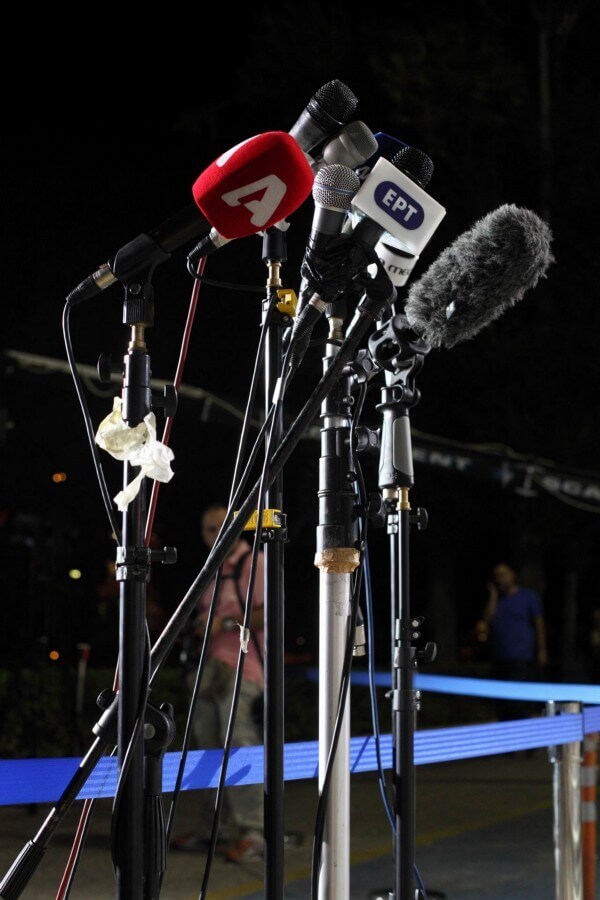
The impact for democracy is terrifying. “A very tangible example is when media with power show different possibilities of facing financial crisis, the citizen is going to vote differently. He is not going to be easily devastated, as he will know that other countries have succeeded. That Argentina and Iceland coped with financial crisis. That privatizations failed. That even big capitalist countries nationalized banks.” There are small, independent media outlets reporting on this, but they don’t reach the vast majority of people.
Lamprini Thoma is now a retired journalist and is of the opinion that a main catalyst for press freedom is the political identity the media might possess, because it is mirrored in the labor relations. “The state of fear for our salaries, for our lives and if we can still manage, is creating self-censorship, before even the boss asks something,” she says. “When I corrected the administration’s announcement on-air, they fired me. After pressure from colleagues they took me back, but never gave me my radio show. I had no voice and they made me work night shifts, even though I am a single parent.”
Over 2012–2013, many such incidents took place. “I was one of the many. I have been to court three times for these kinds of matters. We haven’t fought for our labor rights, but we have to defend them as much as we can.” In the middle of the crisis, no one can speak up. Because journalism is the Fourth Estate and deals with public opinion, “the situation is way more intense. Freedom of speech has been seriously wounded, since the fear of tomorrow is growing stronger each year that passes by. When there are no morals or code of conduct, everyone is doomed.”
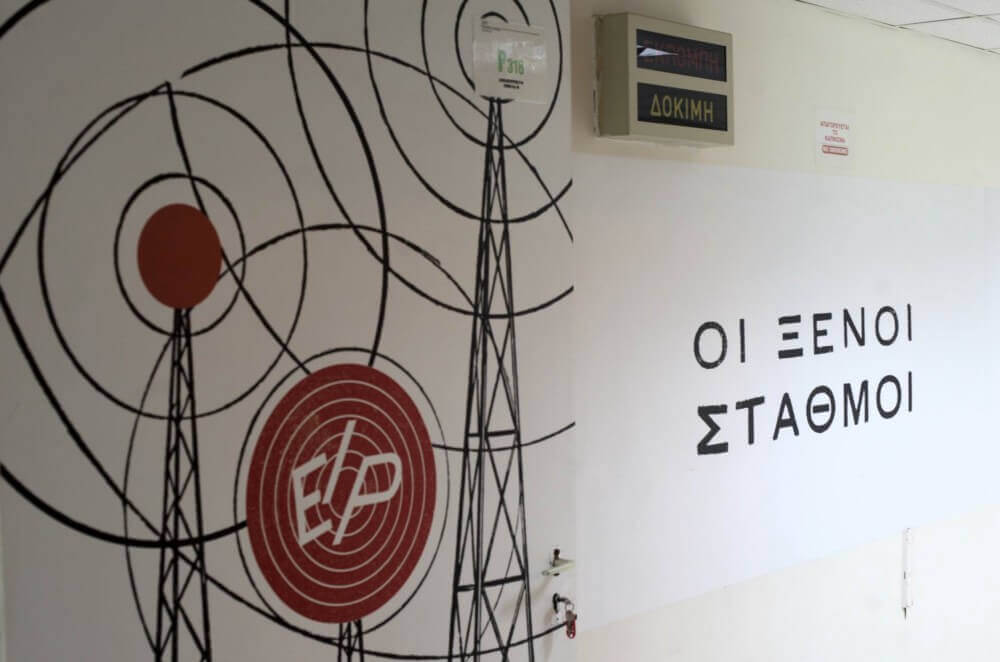
Christos Iereidis, a journalist for the Ethnos newspaper, stated that what you take depends on what you give. “When someone is not receiving a decent salary, this has an impact on the quality of journalism. Most of the journalists are working in order to make a living, so they are going to do whatever they think they have to,” he said, admitting that he has been asked not to write about certain topics. “I am a professional, I will do what my superiors tell me, my manager and my boss. I can’t go and punch the system. Whoever says that he has not been affected and he writes impartially and freely, it’s a joke, especially in the era we live in.”
I can’t go and punch the system.
The working conditions are inhumane, there is a constant disdain of the profession, and the earnings are so little that even established journalists live with their parents. “It’s not my newspaper. if they like it, good, if not, there are other media outlets as well. In the past, if you disagreed with your boss, you could go to another newspaper that was closer to your value system,” he said.
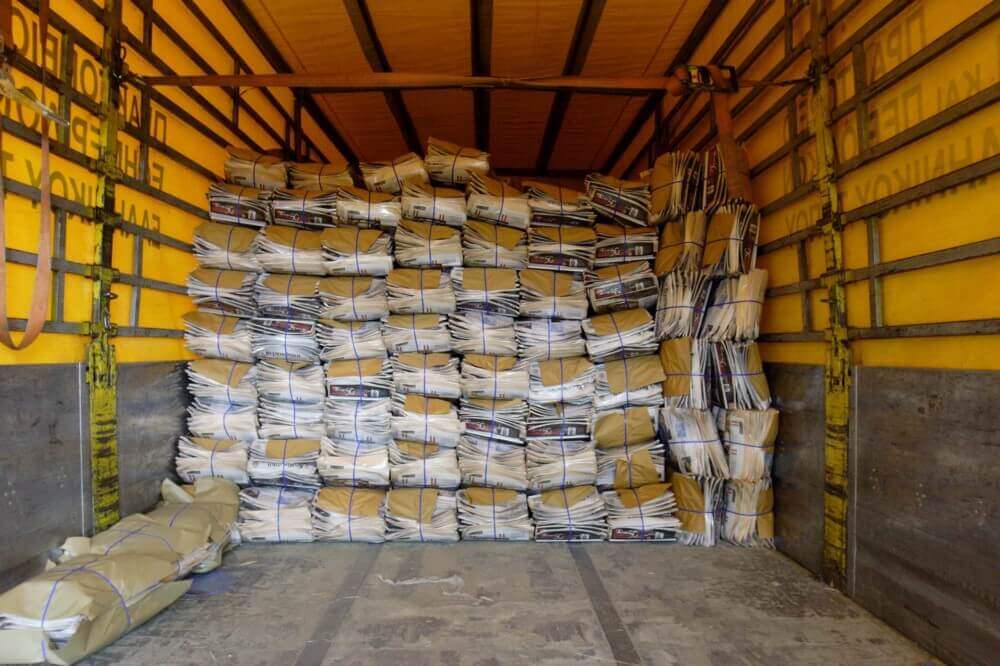
In total contrast, Andreas Petropoulos, a journalist from Avgi, a left-wing newspaper, stated, “Due to the unusual political circumstances, Greece is in its worst moment. The level of press freedom is extremely limited. The journalist sometimes has to restrict himself, so that he is aligned with the outlet he works for, or else there will be consequences sooner or later.”
As he cited, his own political views comply with Avgi’s, so he faces zero problems now. “But when I was working for a Sunday newspaper, they insisted on me writing a story regarding national security that I considered not only patriotic, but extremely nationalistic.”
But we will continue to fight for it.
These phenomena of exploiting members of the press, such as not paying or only symbolically remunerating them, asking for double or triple the work and undermining labor rights, make the journalist’s work even more difficult and affects his dignity as both a professional and a citizen. As Vicky Veniou said, “Above all, we are humans and we shouldn’t sacrifice our humanity for any success. For us, the romantics, free, independent and unbiased journalism is far from existent. But we will continue to fight for it.”
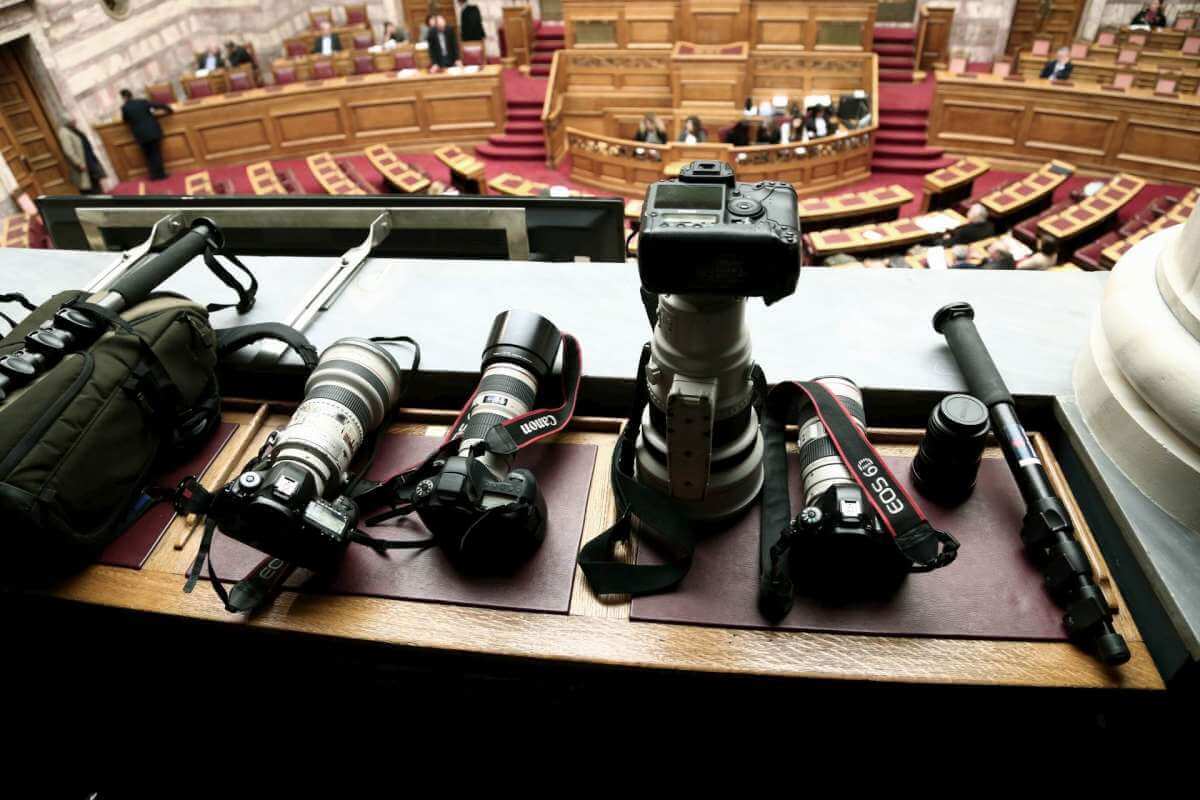
10 incidents degrading journalism in Greece
2010: Murder of journalist and head of Radio Thema 98.9 Socratis Guiolias outside his house. He was gunned down in the early hours of the morning, with 20 or so cartridges that linked the killing to a group of extremists called Sehta Epanastaton (Revolutionaries’ sect).
2011: Aris Chatzistefanou was gradually marginalized from the channel SKAI TV. First they discontinued his show, Infowar. Then, they stopped the second airings of his radio show and they continuously cancelled the Sunday’s broadcasting. When he refused to sign the illegal individual contract with reduced wages by 10%, a clear violation of collective agreements, he was fired.
2012: Lamprini Thoma on-air during her radio show identified one announcement as coming from the radio station’s management, not from the workers, and she had her show taken from her and was moved to the night shifts, even though she is a single parent.
2013: State TV and radio stations of the Hellenic Broadcasting Corporation, or ERT, were pulled off the air in several parts of the country and the government announced that all signals would go dead, because it was a “haven of waste”.
2015: Absolute media propaganda took place in favor of the “Yes” campaign in the referendum regarding the bail-out conditions.
2016: Amid protests in the centre of Athens, Thanasis Kamvisis, a photojournalist was abducted by police, despite showing his journalistic identity card. “Go away, I don’t care, you’ve got no business here,” one policeman told him. He ordered him to go to the police station and kicked him wildly, before handcuffing him. “If my other colleague wasn’t there to record the incident with his mobile phone, the news would not have come out.”

2017: Prime minister Alexis Tsipras tries to rescue DOL, a cash-strapped large media group that he has often criticized in the past and accused of disinformation and colluding with business interests.
-Additionally, the employees of DOL were asked to sign an odious contract that included significantly lower wages than their initial contracts, and the obligation to work for another department of the organization should the management decide. Also, the employees had to waive their copyrights so that the work produced would belong solely to the company, while the company is exempt from any legal or civil liability. Last but not least, the contract included a term obligating the employee to avoid any actions that may harm the ownership of the company. Whoever didn’t sign the contract was fired.
-Greek foreign minister Nikos Kotzias attempted to silence the magazine the Athens Review of Books in retaliation for a reference to his Communist past, by suing the magazine for 250,000 euros in libel damages.
2018: Seven employees of the left-wing radio station Kokkino were fired because they didn’t consent to the reduction of their remuneration, when they were already owed more than two months’ salary, imposing “the worst working conditions and not just turbulence in the media, [but] the violation of the ‘red line’ in the redundancies, the dismissal of colleagues with specific trade union characteristics, [and] the logic of the motto ‘There Is No Alternative,’” a workers representative stated.
***
![Political Critique [DISCONTINUED]](http://politicalcritique.org/wp-content/uploads/2015/09/Political-Critique-LOGO.png)
![Political Critique [DISCONTINUED]](http://politicalcritique.org/wp-content/uploads/2015/09/Political-Critique-LOGO-2.png)